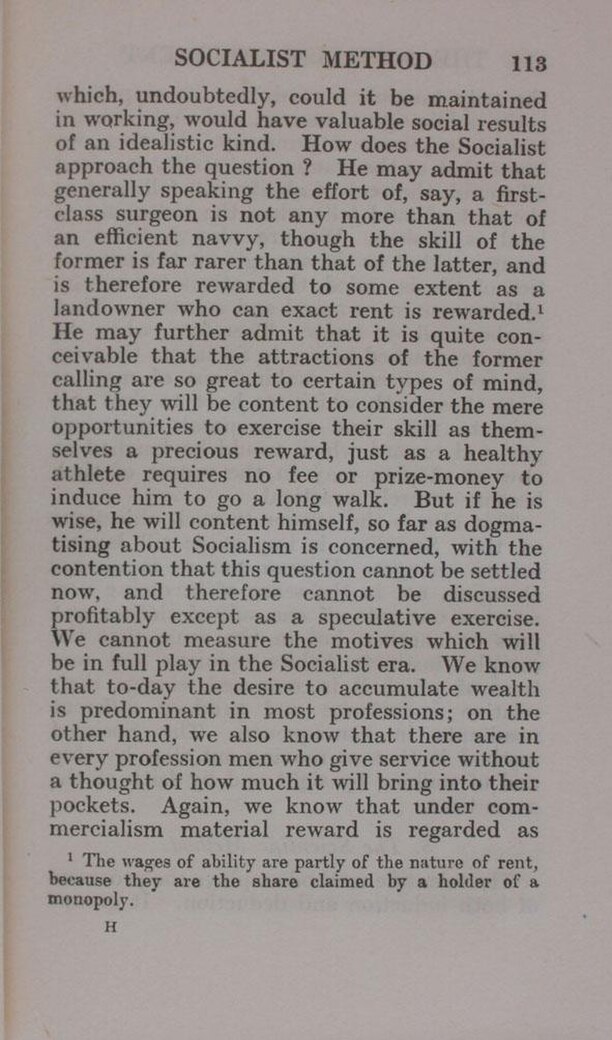which, undoubtedly, could it be maintained in working, would have valuable social results of an idealistic kind. How does the Socialist approach the question? He may admit that generally speaking the effort of, say, a first-class surgeon is not any more than that of an efficient navvy, though the skill of the former is far rarer than that of the latter, and is therefore rewarded to some extent as a landowner who can exact rent is rewarded.[1] He may further admit that it is quite conceivable that the attractions of the former calling are so great to certain types of mind, that they will be content to consider the mere opportunities to exercise their skill as themselves a precious reward, just as a healthy athlete requires no fee or prize-money to induce him to go a long walk. But if he is wise, he will content himself, so far as dogmatising about Socialism is concerned, with the contention that this question cannot be settled now, and therefore cannot be discussed ape except as a speculative exercise. We cannot measure the motives which will be in full play in the Socialist era. We know that to-day the desire to accumulate wealth is predominant in most professions; on the other hand, we also know that there are in every profession men who give service without a thought of how much it will bring into their pockets. Again, we know that under commercialism material reward is regarded as
- ↑ The wages of ability are partly of the nature of rent, because they are the share claimed by a holder of a monopoly.
